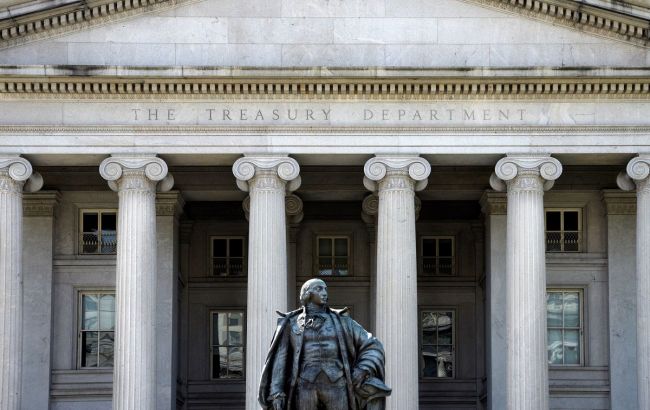US investigates Russian accounts in Switzerland's largest bank - Reuters
 Illustrative image (Getty Images)
Illustrative image (Getty Images)
The United States is investigating UBS's Russian clients. The situation changed after the purchase of Credit Suisse, which strengthened control over one of the world's largest asset managers, according to Reuters.
The US sanctions enforcement agency OFAC has written to the bank as part of this investigation, two people familiar with the matter told Reuters. The US official, who asked not to be identified, said the Swiss bank and the enforcer had held talks.
According to one of the sources, OFAC, the world's most powerful sanctions agency, sent a letter to UBS in recent weeks.
The inspection concerns the Russian clients of Credit Suisse, which are now the responsibility of UBS after the lender's rescue. Credit Suisse collapsed in March 2023 after years of scandals ranging from espionage to drug money laundering.
According to one source, UBS is seeking to limit the possible consequences of OFAC's requests by blocking suspicious money and closing accounts to avoid the threat of a fine.
The United States uses sanctions as a foreign policy tool, imposing restrictions to curb the activities of countries such as Russia and Iran.
Dealing with Russian money has become even riskier after the United States and its Western allies imposed an unprecedented network of sanctions in response to Russia's invasion of Ukraine.
While the US official praised UBS for its cooperation, one other source said it was made clear that failure to deal with the problem could be punished. Regulators in Switzerland are closely scrutinizing how UBS handles Credit Suisse clients and the bank's anti-money laundering policies as they are concerned that the Swiss bank may be exposed to risky clients.
Problem money
According to one of the sources, the bank, led by CEO Sergio Ermotti, is checking Credit Suisse's books, getting rid of unwanted clients and assets, including those linked to Russia.
For those who violate US sanctions, for example, a bank that processes a payment for a person under sanctions may be subject to a fine. In exceptional cases, the US has cut off access to the dollar, the lifeblood of international finance.
It is unclear how much problematic money of Russian origin is currently held by UBS. In 2022, the then-CEO of Credit Suisse reported that 4% of the money the bank managed was for Russian clients - the equivalent of about $35 billion.
The United States and Switzerland have faced a conflict over attempts to identify and sift out Russian money.
One of Washington's main complaints is that Switzerland does not have a law requiring the declaration of real ownership of assets, such as an apartment or a company. This would make it clear, for example, when the owner is subject to sanctions, said a US official.
According to this person, OFAC is frustrated with Switzerland's inaction and there are concerns that the country could be used to funnel illicit funds not only to Russia but also to countries such as Iran.
The source said that these concerns were mainly related to small, private Swiss banks, where the suspicion was that lawyers were hiding the true identity of the owners to move money. UBS, the source said, was not seen as a culprit.
The Finance Ministry official said that parliament would soon discuss government proposals to create registers of beneficial owners of firms and funds, as well as to introduce stricter anti-money laundering rules for lawyers.
The election of Donald Trump to the US presidency may mean a change of course regarding sanctions against Russia or Switzerland, although it is not yet clear what policy he will pursue.
In March 2023, the Swiss banking giant UBS bought the struggling Credit Suisse bank. The transaction amounted to CHF 3 billion.
In September 2023, it was reported that the US Department of Justice had stepped up its investigation into Credit Suisse and UBS over suspicions of non-compliance with requirements that allowed Russian clients to evade sanctions.

